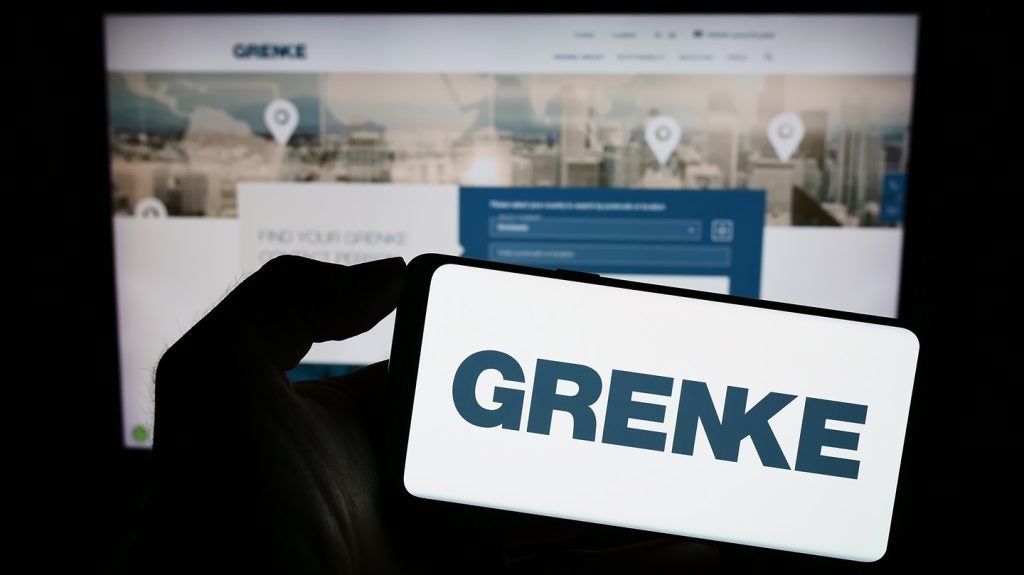
UK leasing appears to be
getting back on its feet with the news that three leasing companies
are not just reporting healthy profits, but also showing a
willingness to diversify and embark on exciting international
projects. Fred Crawley reports.
It seems this will be a good summer
for diversification among the UK’s smaller funders. A new leasing
business has been formed with the backing of invoice finance
provider Ultimate Finance; State Securities is considering a return
to the commercial property market after a major sales revival; and
the ever-hungry Microlease has been ramping up business through an
innovative sales-aid scheme.
AIM-listed Ultimate Finance’s new venture,
Ultimate Asset Finance (UAF), is to be led by Andrew Ribbins, one
of the key figures behind combined lender/broker Voss Finance.
Voss, incorporated in 1995, remains active in
leasing to SMEs, with a focus on plant and machinery assets. It is
a niche lender with a risk pricing model towards the higher end of
the spectrum, and yet has suffered virtually no bad debt over the
course of the recession. Write-offs only arose from the multiple
finance controversy surrounding plastics manufacturer Global EPP –
an issue that affected most of the UK’s lessors.
How well do you really know your competitors?
Access the most comprehensive Company Profiles on the market, powered by GlobalData. Save hours of research. Gain competitive edge.

Thank you!
Your download email will arrive shortly
Not ready to buy yet? Download a free sample
We are confident about the unique quality of our Company Profiles. However, we want you to make the most beneficial decision for your business, so we offer a free sample that you can download by submitting the below form
By GlobalData
High level of control
Coming from this background, Ribbins
will build a relatively small operation at UAF, lending in the
single-digit millions within its first year and keeping a high
level of control over quality of deals.
In the months to come, UAF will move into a new
office, which will also house a new regional division of Ultimate’s
mainstream business.
Deals will be sourced initially from Ribbins’
own contact book, and from Ultimate’s invoice finance customer
base.
Yet, while Ultimate Finance accepts business
from intermediaries in its mainstream invoice finance business, its
new asset finance subsidiary will not be doing so until it has
built up its funding base further.
Currently, UAF has secured funding lines with
Siemens Financial Services and Singers Corporate Asset Finance.
Ultimate, which has offices in Manchester,
Bristol and Tunbridge Wells, also launched a trade finance business
in March – another example of the company’s holistic approach to
commercial finance provision.
Furthermore, the future looks comfortable for
the group, with the half-year leading up to 31 December 2009 seeing
Ultimate make a pre-tax profit of £191,000 (€232,000, up from
£140,000 a year earlier) despite a turnover reduced from £2.2m to
£2.9m.
While UAF will not be rubbing shoulders with
the giants of UK leasing any time in the near future, its
foundation represents another point in favour of the school of
thought which says that asset and invoice finance can work better
when under the same roof.
Asked whether there had been any difficulties
in providing leasing through Ultimate’s wider sales force, who have
traditionally sold invoice finance, Ribbins said: “I don’t think it
is too tough to cross train for hire purchase and leasing
sales.
“This is a highly professional sales force, and
they know how to look at a customer balance sheet, which is
fundamental to both product sets.”
“Considering that our leasing product is not
too complicated, I think it will be straightforward to spot
opportunities for sale and leaseback, for example, with customers
looking to acquire cash by factoring book debt”
Meanwhile, another lender with the ability to
provide both invoice finance and leasing products is Southampton’s
State Securities. The company celebrated the 30th anniversary of
its incorporation last month and predicts a promising future in
lending across multiple product lines.
Best first-quarter sales
According to sales director Barry
Hutchings, who joined State in November 2009, the company has seen
its best first-quarter sales total in two years, and during the
first half of 2010 expects to double the amount of business it
signed during the equivalent period in 2009.
By the end of the year, Hutchings says, annual
new business volume is targeted to reach 250% of the 2009 total – a
dramatic return to form for the subprime specialist.
Another return to form for State could be in
property lending. Having withdrawn from the commercial mortgage
market over two years ago, the company has only undertaken property
loans to support other lending requirements, with standalone
commercial mortgage opportunities avoided.
This situation is under review, however, with
commercial mortgage products looking likely to once again form part
of State’s core offering through brokers. Heavily involved in this
discussion will be Graham Jacobs, the property expert who joined
State in 2007 after helping the company to secure its new
premises.
Hutchings also sees potential for State to grow
through its invoice finance offerings.
“We do see a particularly strong opportunity to
grow our factoring business,” he said.
Hutchings added: “We will continue to produce
innovative financing solutions for customers with more challenged
credits, including refinance and turnaround finance buy-outs, which
a growing number of SMEs require and for which we are
renowned.”
More good news
Finally, more good news has come from
Microlease, the UK-based (but increasingly global) test equipment
lessor with backing from LDC, the private equity arm of the Lloyds
Banking Group
The company’s revenue for the year leading to
31 January totalled £30m, considerably up on last year’s figure of
£23m, with earnings before interest, taxes, depreciation and
amortisation up from £10.6m to £13.6m over the same period.
The results represent the fourth year in which
Microlease has exhibited more than 30% growth, following the
management buyout which saw current CEO Nigel Brown take control of
the business in 2006.
Despite its name, Microlease is as much a
dealer of high-precision test equipment as it is a lessor of such
kit. However, according to Brown, it is the offering of financial
products, including both long-term leasing and short-term rental,
that has really powered growth in the last year.
To see how well the company integrates leasing
into its general equipment sales, one only has to look at the
authorised technology partner arrangement Microlease has had in
place with manufacturer Agilent since November last year.
As a result of this programme, Microlease is
now responsible for the lion’s share of Agilent’s sales volume
within the territories of the UK, Ireland and Italy, and has been
offering a full suite of financial products alongside the Agilent
equipment range.
For the first half of the year, says Brown,
leasing penetration rate in the Agilent ATP programme was only 8%.
By the end of the year, however, 36% of programme sales were being
conducted through leasing of one kind or another.
Microlease has also observed a significant
shift in the sectoral uptake of leasing services, with the
aerospace and defence industries growing much more receptive to
acquiring assets on lease – a trend Brown thinks will continue as
the government customers of defence contractors suffer budget cuts
in the years to come.
In 2006, the telecoms and R&D industries
provided 90% of Microlease’s financial services business – now, the
defence sector contributes an equivalent volume.
According to Brown, LDC, Microlease’s private
equity backer, is “very happy” with its investment in the company,
having backed its acquisition of the European operations of US
competitor Telogy in September last year. The financial support
also helped put Microlease in a position to acquire long term
funding lines with RBS and its asset finance subsidiary Lombard,
Brown said.
Keen to invest further
He added “I am confident that, if we
needed more funds to make further acquisitions, LDC would be keen
to invest further”, but confirmed that there were no acquisitions
currently being directly pursued.
Microlease recently attempted to acquire an
American business that had filed for Chapter 11, but did not win
the bid. The target company was eventually sold for $26m
(€21m).
Looking forward, Microlease expects revenue to
increase from £30m to £50m over the 2010 financial year, with
earnings before interest, taxes, depreciation and amortisation
rising from £13.6m to £18m.







